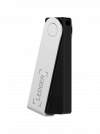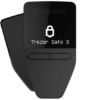Which hardware wallet supports which coins?
If you are looking for a hardware wallet, you have probably asked yourself which coins, i.e. cryptocurrencies, the individual wallets support. You may even be looking for the hardware wallet with the most supported coins.
This evaluation should help you with your selection.
Which hardware wallet supports which Coins?
If you are looking for a hardware wallet, you want your coins to be safe. But not all hardware wallet supported the same crypto currencies. That is why it is important to compare the different models beforehand. Because there are big differences between the models.
If you’re interested in cryptocurrencies, you’ve probably heard of hardware wallets. Hardware wallets are special devices that store your private keys securely and give you access to your coins. But which hardware wallet supports which coins? This is an important question you should ask yourself before deciding on a hardware wallet. In this article, you will find out which factors influence the compatibility of hardware wallets and coins and how to find the right hardware wallet for your needs.
What are the advantages of hardware wallets?
Hardware wallets are one of the most secure ways to store your cryptocurrencies. Unlike software wallets, which are installed on your computer or smartphone, hardware wallets are physical devices that are not connected to the internet. This means that they are protected against hacker attacks, viruses and malware. In addition, hardware wallets are usually secured with a PIN code or biometric authentication so that only you have access to your coins. Hardware wallets are therefore ideal for the long-term storage of your cryptocurrencies that you do not wish to trade or spend regularly.
What factors influence the compatibility of hardware wallets and coins?
The compatibility of hardware wallets and coins depends on various factors that you should consider. The most important are:
- The coin type: There are different types of cryptocurrencies that have different technical requirements. The best known are Bitcoin, Ethereum and the ERC-20 tokens based on them. These coins are supported by most hardware wallets, as they have the largest market capitalization and popularity. Other coin types, such as Monero, Ripple or Cardano, have their own protocols and algorithms that are not compatible with all hardware wallets. You should therefore make sure that your hardware wallet supports the type of coin you want to own or buy.
- The software interface: To connect your hardware wallet to your computer or smartphone, you need a software interface that acts as a wallet app or browser extension. This software interface allows you to manage, send and receive your coins. The software interface must also be compatible with the coin type you want to use. It also needs to be updated regularly to integrate new coins or functions. You should therefore make sure that your hardware wallet has a reliable and user-friendly software interface that meets your needs.
- The firmware version: The firmware is the software that is installed on your Hardware Wallet. The firmware is responsible for the security and functionality of your hardware wallet. The firmware must also be compatible with the coin type you want to use. It also needs to be updated regularly to integrate new coins or functions. You should therefore make sure that your hardware wallet has an up-to-date and stable firmware version that meets your needs.
Which hardware wallet supports the most coins?
The number of coins that a hardware wallet supports depends on various factors, such as the coin type, the software interface and the firmware version. There is no clear answer to the question of which hardware wallet supports the most coins, as compatibility can change constantly. However, there are some hardware wallets that are known to support a high number of coins. These include, for example:
Ledger Nano X
The Ledger Nano X is one of the most popular hardware wallets on the market. It supports over 1,800 different coins, including Bitcoin, Ethereum, ERC-20 tokens, Ripple, Stellar, Cardano, Monero and many more. The Ledger Nano X has a secure chip, a Bluetooth connection, a battery life of up to 8 hours and a storage capacity of up to 100 apps.
Trezor Model T
The Trezor Model T is another popular hardware wallet on the market. It supports over 1,600 different coins, including Bitcoin, Ethereum, ERC-20 tokens, Litecoin, Dash, Zcash, Tezos and many more. The Trezor Model T has a touchscreen, a USB-C connection, a recovery card and a storage capacity of up to 200 apps.
KeepKey
KeepKey is another hardware wallet that supports a large number of coins. It supports over 1,000 different coins, including Bitcoin, Ethereum, ERC-20 tokens, Bitcoin Cash, Dogecoin, Dash and many more. The KeepKey has an OLED screen, a micro USB connection, a recovery card and a storage capacity of up to 100 apps.
As you can see, there are various hardware wallets that support a large number of coins. However, you should not only consider the number of coins, but also other criteria such as security, user-friendliness and price when deciding on a hardware wallet.




Comments
Do you support DOT